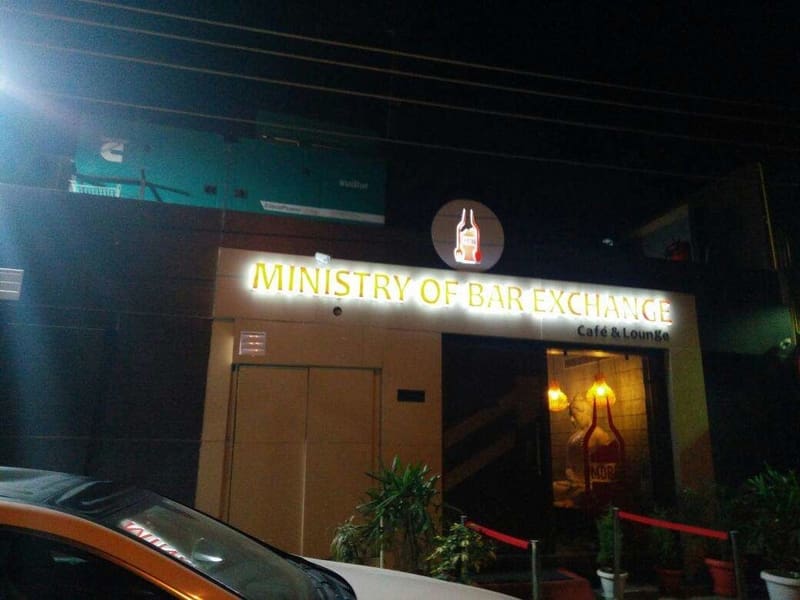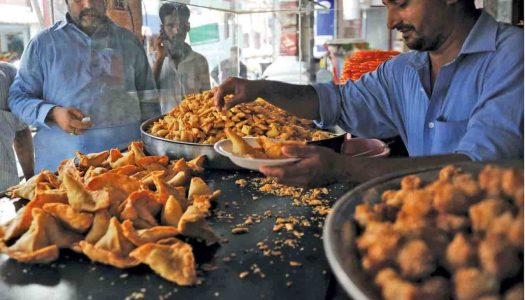If it’s Chandigarh you are in and want to search for a suitable nightspot to hang out, you will have no shortage of pubs, bars, and discs. This is a city whose cosmopolitan crowd comes out at night to throng its cafes, lounges, bars, restaurants, bistros, and clubs. A vibrant nightlife is what makes this one of the most happening cities in India. There are innumerable options for pubs in Chandigarh.
Though there are many nightclubs in Chandigarh, we have chosen only the best ones, where there is good crowd hanging around, is safe for women, dishes out good food, and are known for their trend-setting ambience and décor.
14 Pubs in Chandigarh That Tops the List
1. Score Pub

Score Pub is a place for the elite. It has a relaxing ambience and a trendy décor, which makes people relax after dancing to loud thumping music. Neon lights and ambient lighting induces even the more sombre of souls to join the party. Guests can view live sports action on large HD screens. The food has excellent dishes from North Indian, Italian, and Mexican cuisines, and the bar serves delicious drinks too.
- Location: Sector 8C
- Zomato Rating: 3.1/5
- Cost for two (with alcohol): Rs.2,000/- (approx.)
Suggested to Read : Best Weekend Getaways from Chandigarh
2. Lava Bar

This place tempts party animals and night owls to hang out in a luxurious ambience. Located in the Taj, this lounge bar serves the finest wines and cocktails, and some lovely finger food. Live musical performances by well-known bands keep the guests entertained. There are large TV screens to enjoy live sports action.
- Location: Sector 17
- Zomato Rating: 3.3/5
- Cost for two (with alcohol): Rs.2,700/- (approx.)
3. Ministry of Bar Exchange

This concept bar in Chandigarh has the most innovative way of serving drinks. Prices of drinks, here, can fluctuate based on their demand and supply, and you can get your favourite drinks at great prices!! They have excellent food too, from Continental, Italian, Chinese, and North Indian cuisines. There are large screens to catch live sports action.
- Location: Sector 26
- Zomato Rating: 4.0/5
- Cost for two (with alcohol): Rs.1,500/- (approx.)
Also Check : Shopping Places in Chandigarh
4. The Great Bear

For beer lovers, who like to have the most exquisite of brands, can count this lounge among their favourites. This microbrewery treats their guests to the most famous German beer like Golden Ale, Wheat Beer, German Bock, Brewers Special, along with Shooters, Single Malts, Sangrias, Martinis, and other spirits.
- Location: Sector 26
- Zomato Rating: 4.7/5
- Cost for two (with alcohol): Rs.1,600/- (approx.)
5. Paara Club

This nightclub has taken clubbing to a different level!! Luxurious ambience, a swanky discotheque with a dance floor, lounge for relaxation, are enough reasons for the youngsters and trending crowd of Chandigarh to party here. The food is a lavish spread of Continental and North Indian cuisines. The bar is astounding too!!
- Location: Chandigarh Industrial Area
- Zomato Rating: 3.4/5
- Cost for two (with alcohol): Rs.3,000/- (approx.)
Also Check the couple friendly hotels in chandigarh | Couple Friendly Hotels near Sector 35 Chandigarh
6. Hops n Grains

This microbrewery is the best of places in Chandigarh to have the very best of beers. The beers are specially brewed with innovative techniques to give you that refined taste in all their brewed beverages, that a life of all parties. They also have other drinks, which can be just as delicious as the beers. The interiors are splendid and the ambience has a lounge feeling to it.
- Location: Panchkula
- Zomato Rating: 4.8/5
- Cost for two (with alcohol): Rs.2,000/- (approx.)
Also check Hotels near Sector 5 Panchkula Chandigarh | 3 Star Hotels near Sector 43 Bus Stand Chandigarh
7. Kitty Su

This nightclub in The Lalit is one of the most happening places in Chandigarh. Parties can reach dizzying levels here, with revolving neon lights, loud club music, lavish interiors, and themed nights. Ultra-modern sound systems and acoustics, pop art installations, and excellent food and drinks, all combine to make it a top hang-out place in Chandigarh.
- Location: IT Park
- Zomato Rating: 3.3/5
- Cost for two (with alcohol): Rs.4,000/- (approx.)
Also check Hotels in Chandigarh with Bar | Hotels in Sector 22 Chandigarh | 3 Star Hotels in Sector 22 Chandigarh
8. Buzz

Rising quickly as a top nightclub in Chandigarh, Buzz continues to draw the most vivacious crowds to its doors. It has a spectacular lounge environment, with a discotheque. Bright neon lights, retro music played by the DJs, overflowing mugs of beer, and good food – what else does one want to party?
- Location: Sector 17
- Zomato Rating: 3.2/5
- Cost for two (with alcohol): Rs. 2,500/- (approx)
Also Read : Street Food in Chandigarh
Also check Hotels near Isbt 43 Chandigarh | Couple Friendly Hotels near Sector 16 Cricket Stadium Chandigarh
9. Peddlers

This pub in Chandigarh is another top night spot for young crowd to hang out and party. Music performances by live bands and singers, excellent décor and a comforting ambience make you enjoy every moment here. The food offers wonderful choices from North Indian and Italian cuisines. The bar serves exquisite cocktail combinations, among the usual drinks.
- Location: Sector 35
- Zomato Rating: 3.8/5
- Cost for two (with alcohol): Rs.2,200/- (approx.)
Also check 3 Star Hotels near Sector 16 Cricket Stadium Chandigarh | 3 Star Hotels in Sector 43 Chandigarh
10. FLYP@MTV

This trendy lounge has given the urban youth an exciting new party destination in Chandigarh. It has redefined the café experience with its live music and stand-up comedies, specially curated menu from the top chefs, live sports action, a dashing ambience with ambient lighting and retro interiors.
- Location: Sector 26
- Zomato Rating: 4.2/5
- Cost for two (with alcohol): Rs.1,200/- (approx.)
Also check Couple Friendly Hotels in Sector 43 Chandigarh | Hotels in Sector 43 Chandigarh
11. Whistling Duck

Head to this casual dining bar in Chandigarh for an amazing nightclub experience!! The place has luxurious interiors and a spectacular décor that will tempt you to stay through the night. There are DJ nights, live gigs, and themed events that make the crowds entertained and excited to attend them. The food and drinks are super delicious!!
- Location: Sector 26
- Zomato Rating: 3.9/5
- Cost for two (with alcohol): Rs.1,700/- (approx.)
Also check Hotels near Sector 43 Bus Stand Chandigarh | Couple Friendly Hotels near Sector 43 Bus Stand Chandigarh
12. The Back Room

This is among the best nightclubs in Chandigarh, having exotic décor and a relaxing ambience. It is a treat to music lovers, as they get to enjoy well-known and budding talents. The chill-out place has excellent acoustics and great food to enjoy. Alcoholic and non-alcoholic beverages are superb too.
- Location: Sector 34
- Zomato Rating: 4.0/5
- Cost for two (with alcohol): Rs.1,600/- (approx.)
Also check 3 Star Hotels in Sector 35 Market Chandigarh | 3 Star Hotels near Sector 35 Chandigarh | Hotels near Sector 35 Chandigarh
13. Hoppin Resto Bar

This place will relax you with its charming ambience and soothing music. Plush interiors of this place cast a perfect setting to enjoy the music and the food too. The menu has excellent choices from North Indian, Continental, Italian and Chinese cuisines. You get signature cocktails, whiskey, beers, spirits and other beverages.
- Location: Chandigarh Industrial Area
- Zomato Rating: 3.4/5
- Cost for two (with alcohol): Rs.1,500/- (approx.)
Also check Hotels in Sector 63 Chandigarh | 3 Star Hotels in Sector 63 Chandigarh
14. F Bar & Lounge

If you want to party with friends in a luxurious ambience, then this lounge bar is your ideal destination in Chandigarh. It has the best of lighting and music, which draws people to groove and dine. It has a lavish menu of delicious foods from North Indian, Continental and Chinese cuisines. The rooftop area is best to enjoy the cool nightlife.
- Location: Sector 26
- Zomato Rating: 3.9/5
- Cost for two (with alcohol): Rs.1,800/- (approx.)
Also check Hotels near Sector 16 Cricket Stadium Chandigarh | Couple Friendly Hotels in Sector 22 Chandigarh
Though there are others too, these are the best and the top ones to go when you are in Chandigarh. They are the trendiest of places and offer the best of drinks with music, food and a dance floor. If you have been to these, or know of some more, drop your comments in the section below.
Book hotels in Chandigarh for a stress-free stay experience.




















